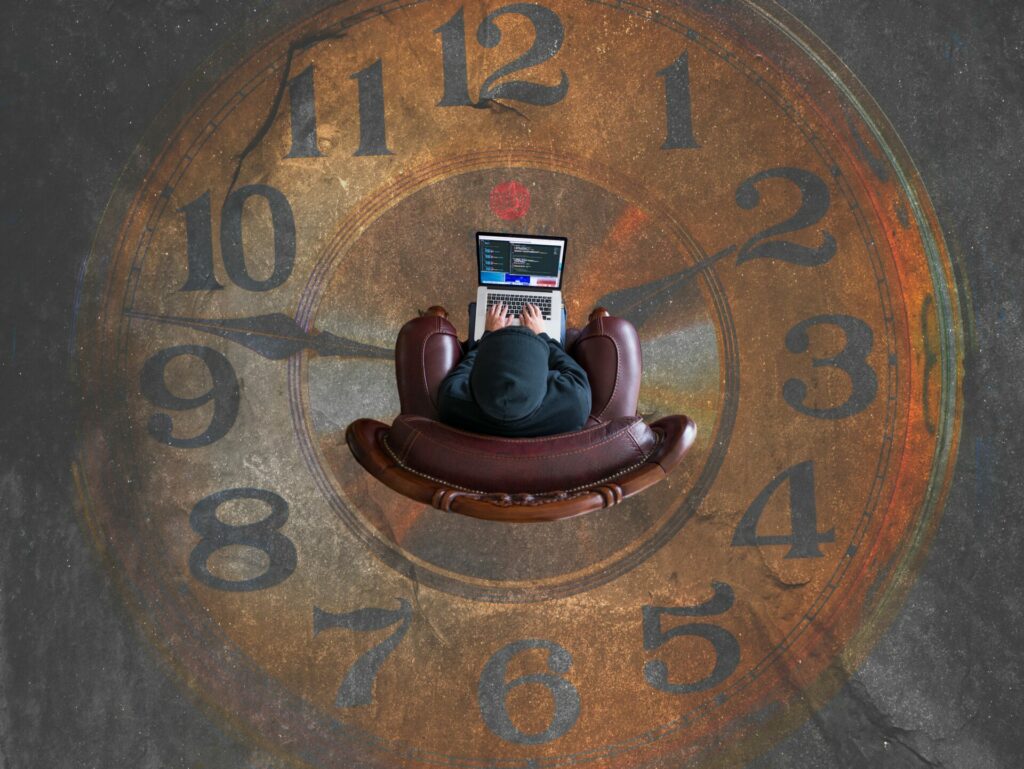Many people want to organise their lives as efficiently as possible and so they invest in planners, calendars and productivity apps to keep a close eye on not only their obligations, but also their free time. But experts say that time management is not the solution, it is even part of the problem.
It seems like there's nothing today that you can't optimise with a schedule, with a checkbox, with a neatly defined time. Where calendars used to be mainly limited to birthdays and obligations, today we even use them for planning the moments we spend with friends, the fifteen minutes we keep free to call our parents, the city trip that is planned in a work-free month.
More and more people are turning to apps to manage their daily lives. The so-called productivity software sector is booming to such an extent that it is expected to be worth $103 billion by 2027.
This planning is not only limited to screens: paper planners are also still doing well in 2022, and the offer shows that the traditional agenda today must be supplemented with meal planners and calorie trackers, with cleaning schedules and sports guides. They are equipped with grids in which you can colour your number of pages read, litres drunk and hours slept.
Not happier, more efficient, or even calmer
With modern life moving at such a pace, it is logical that we fall back on time management to better manage the time we have, on apps, planners and calendars. But how useful are these things?
"Research shows that time management does not so much lead to better performance, but that it can mainly reduce stress," Wendelien van Eerde, senior lecturer at the Amsterdam Business School of the University of Amsterdam, told De Morgen. "It has everything to do with feelings of control. By using a planner you have a good overview of what needs to be done. You get a better grip on your time. In theory, this would allow you to work more efficiently."
In theory, that is. Because for the time being, there is no hard scientific evidence that this is the case. Quite the opposite, in fact. "Time management is not the solution, it is actually part of the problem," says British business psychologist and management guru Tony Crabbe in his book ‘Busy: How to Thrive in a World of Too Much’ (2015). "It doesn't make us happier, more efficient, or even calmer."
Our obsession with time management also does not ensure that we can perform our tasks better. "Efficiency is based on two core skills: prioritizing and performance itself," Crabbe said. "When we have a strong sense of time, our attention narrows and our ability to make good choices decreases. We make decisions based on immediate demand, rather than zooming out to look at the bigger picture. And so we prioritise the urgent and immediate, rather than the important and strategic."
You don't get more time, just more tasks
The thing is, time management does allow us to do more things in a given time frame – even if we don't do those things better. In real life, optimising your time doesn't leave you with more time, but allows you to do even more things during that time, constantly overwhelming us with everything we should or could do with those minutes gained.
Related News
- Dementia now the leading cause of death in Belgium
- Study shows different exercises help with memory retention
Moreover, thanks to new technology – and the Silicon Valley ethos that life is a problem that needs to be solved and hacked – we have the idea that everything can be done faster and more streamlined. Our sleep is monitored so that an app can tell us when to go to bed, and thanks to Zoom or Skype, we can even make conference calls with customers around the world from that bed.
We no longer have to go to the bank and we no longer have to go to the physical store, and we no longer have to cook if we don't want to or can't, because there are delivery services – or meal shakes for people who don't even want to waste time doing something banal like chewing food.
Agendas are valuable, but time is not money. And the moments that turn out to be the most precious afterwards cannot be limited in the columns of a spreadsheet or the covers of a habit tracker. Let them last as long as they take. Often that will still prove to be too short.

